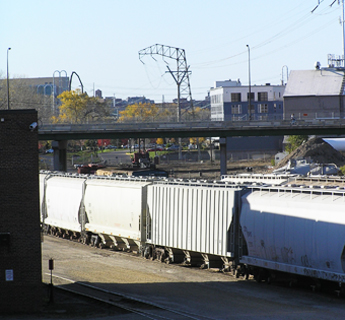Freight: Accommodate freight movement and facilities in order to support the local and regional economy.

The safe, efficient, and reliable movement of freight is vital to a healthy local and regional economy. All industries, especially manufacturing, construction, wholesale, and retail trade, rely on a multimodal freight system to transport goods. Truck traffic comprises most of the local and regional freight system in Minneapolis, with additional regional and international connections via rail and air.
The City of Minneapolis will support the maintenance and expansion of freight infrastructure where benefits to the local and regional economy are apparent and where impacts to surrounding land uses are minimal. The City will encourage adaptation of urban-centered freight innovation and technology, both for shipment into Minneapolis and last mile distribution.
 ACTION STEPS
ACTION STEPS
The City will seek to accomplish the following action steps to accommodate freight movement and facilities in order to support the local and regional economy.
- Adapt to the changing needs of freight, e-commerce and urban logistics.
- Support the continuation of existing freight rail infrastructure where consistent with land use policy, but do not support expansion of freight rail through Minneapolis.
- Prioritize investment in safety and crossing improvements along active railroad corridors.
- Maintain a network of truck routes that ensures the safe and efficient delivery of goods, while encouraging smaller vehicles that are more compatible with an urban environment, centralized drop off and pick up zones, and other innovations that make freight delivery more convenient for the customer with less of an impact on the transportation network.
- Encourage electrification of freight vehicles, as well as the automation of platooning.

